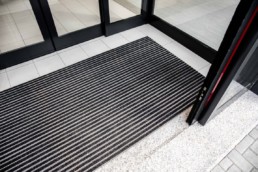Structural joints for floors.
Identifying the structural joint to use depends on the size of the opening as well as the surrounding floor and the foot traffic.The structural joints absorb the differentiated movements to which the sub-base is subject to and they avoid the dangerous passage of tensions to the floor.The following are a few types of joints available on the market.
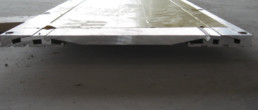
Structural joints for ceramic or natural stone floors.
Structural joints are made of aluminum and fit anchoring holes where the support rests.The seal is elastic, interchangeable and made of Dutral (EPDM) or neoprene to allow the expansion and contraction of the joint.
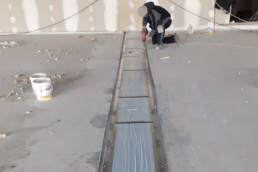
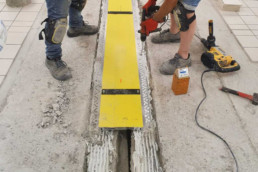
Structural joints for large openings.
The joints have a width from 10 to 40 cm, are made of aluminum and have anchoring holes where the support rests. They are suitable to bear the loads of cars and trucks where there are smaller openings while there are larger openings where the joints resist to tensions due to foot traffic and light carts.
Structural joints for heavy traffic.
These joints are suitable to the passage of forklifts they have an extruded aluminum structure and they are equipped with both a fit a milled anti-slip surface and suitable holes where the support rests.They resist to loads and are consequently used for floors in warehouses and shopping centers.
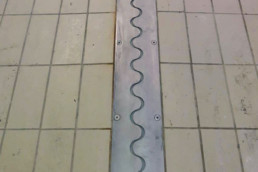

The structural joints for industrial floors.
These joints are made of high thickness aluminum, so they are suitable to be used in the floors of supermarkets and shopping centers and in industrial floors.
Structural joints for finished floors.
These joints are made of aluminum without holes and with a Dutral (EPDM) or PVC seal. They are resistant to wear, weather and thermal changes. They are suitable for ceramic or natural stone floors. For vinyl floors and smaller openings, we use aluminum joints with superficial anti-slip milling and elastic seals of expanded cellular neoprene. For the floating floors, the anti-slip milled aluminum structure is made of a profile with countersunk holes and PVC seals.

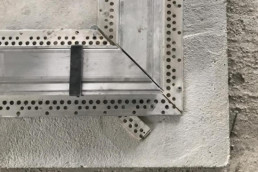
Special structural joints.
Special joints are tailor-made and designed for connections with different angles.
Technical mats.
Technical mats are an essential addition to certain types of flooring that are subject to high pedestrian traffic.Their main function is to ensure that the surrounding flooring is clean and hygienic.Various fields of application make their installation anything but ordinary, not least because of the wide range of patented products available on the market.The direction of the slats and the positioning of the bristles are not only intended to capture and retain dirt from visitors’ shoes but also ensure good slip resistance. Last but not least, their significant aesthetic quality should not be overlooked, thanks to countless options for customising in terms of colour and decorative effect.
